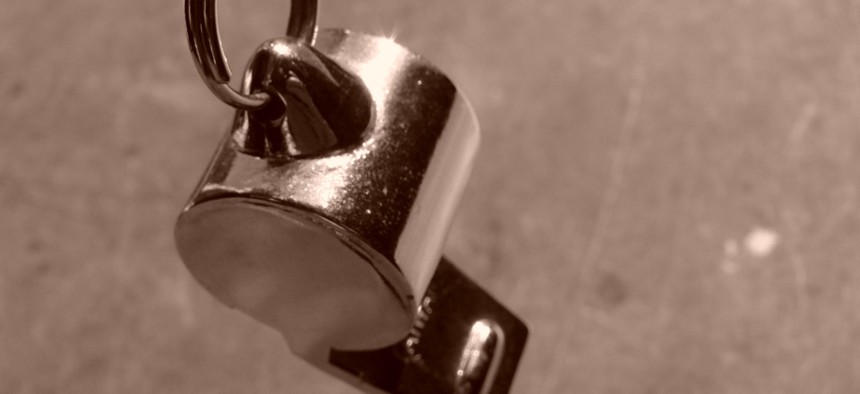
Cindy Lee/Shutterstock.com
Expanded Intel Whistleblower Bill Headed to the President
Advocates praise 'first enforceable' rights for workers at secret agencies.
President Obama on Thursday received the fiscal 2014 Intelligence Authorization bill, which contains expanded protections for intelligence community whistleblowers.
The House, as expected, approved the bill Tuesday by voice vote. Senators had approved it on June 12 and Obama is considered likely to sign it. The measure would expand and codify available rights for whistleblowers that Obama laid out in October 2012 presidential policy directive 19.
Advocacy groups were pleased, but spoke of future improvements still needed. “Too often, federal workers who witness wrongdoing don’t speak up out of fear of risking their reputations, losing their jobs or worse,” said Danielle Brian, executive director of the nonprofit Project on Government Oversight. “This legislation will encourage them to speak up about wrongdoing and help us to root out government corruption in the most secretive and unaccountable parts of government.”
Tom Devine, legal director for the Government Accountability Project, said, “Congress deserves credit for landmark legislation creating enforceable whistleblower rights within intelligence agencies and protections against security clearance retaliation throughout the civil service….While not a final solution, it is the breakthrough shift to challenge abuses of power and corruption by intelligence agencies without risking threats to national security.”
Both groups assert that the final bill still lacks statutory protections for contract employees who blow the whistle. Devine called upon the House Select Intelligence Committee to give up on previous opposition to allowing intelligence contractors “best practice” whistleblower protections, which were in effect from 2007 to 2012, when the House panel negotiated their removal.
The official whistleblower ombudsman for the intelligence community, Dan Meyer, has argued that contractors do fall under the community’s general protections.
(Image via Cindy Lee/Shutterstock.com)







